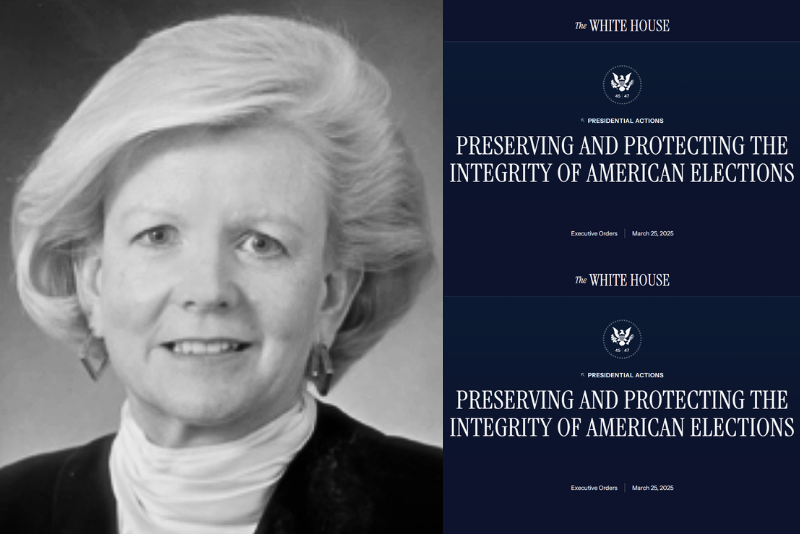
OAN Staff Abril Elfi
6:12 PM – Thursday, April 24, 2025
A Washington, D.C., federal judge has blocked a portion of President Donald Trump’s executive order (EO) on election integrity, referred to as the Preserving And Protecting The Integrity Of American Elections initiative.
Advertisement
On Thursday, Judge Colleen Kollar-Kotelly, of the United States District Court for the District of Columbia, issued the ruling in response to complaints filed by three separate groups of plaintiffs. It contested five elements of the Trump March 25th EO.
While Kollar-Kotelly denied efforts to ban three of the sections, she approved requests to prohibit two other provisions requiring voters to provide evidence of U.S. citizenship.
The first provision that was vetoed sought to compel the Election Assistance Commission to require documented verification of citizenship on standardized national voter registration forms. The second one had proposed requiring federal entities that offer voter registration to those on public assistance to “assess” the individual’s U.S. citizenship status before proceeding.
“Our Constitution entrusts Congress and the States — not the President — with the authority to regulate federal elections. Consistent with that allocation of power, Congress is currently debating legislation that would effect many of the changes the President purports to order,” Kollar-Kotelly, a Clinton-appointee, wrote in her order. “No statutory delegation of authority to the Executive Branch permits the President to short-circuit Congress’s deliberative process by executive order.”
However, Kollar-Kotelly asserted that she would not block the other elements that the groups had intended to challenge, which include mail-in votes and data gathering on citizenship status. She called the challenges “premature” and suggested that they would be better addressed at the state level.
Earlier this month, the Republican-controlled House of Representatives passed legislation requiring proof of U.S. citizenship to vote in federal elections. Additionally, the bill must pass through the Senate before the president can sign it into law.
Meanwhile, 25 states are still exploring proof-of-citizenship laws, according to the Voting Rights Lab, which monitors such legislation. In total, only 15 state constitutions explicitly forbid non-citizen voting.
Stay informed! Receive breaking news blasts directly to your inbox for free. Subscribe here. https://www.oann.com/alerts
Advertisements below




